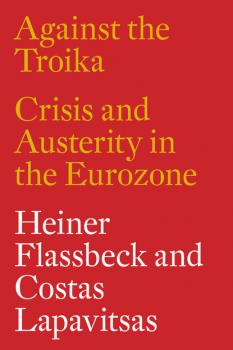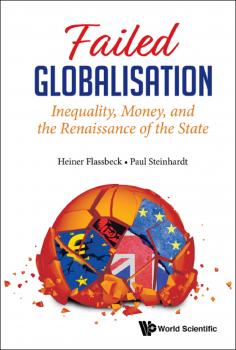Heiner Flassbeck
Список книг автора Heiner FlassbeckDie Marktwirtschaft des 21. Jahrhunderts
Ein neues Wirtschaftswunder ist machbar.
Ohne Idee und ohne wirtschaftspolitische Kompetenz treiben die Regierungen der Industrieländer auf dem von den Finanzmärkten verwirbelten Strom der Weltwirtschaft: Wachstum wollen sie, aber auch Klimaschutz; die Konjunktur wollen sie anregen, aber auch die öffentlichen Haushalte konsolidieren; freien Handel wollen sie, verstehen ihn aber nicht; die Finanzmärkte wollen sie regulieren, wissen aber nicht wie.
Die Politik scheitert. Die Industrieländer wissen nicht mehr, wie man die freie Entwicklung der Menschen zulässt, den Fortschritt aber ökologisch und sozial so sichert, dass nachhaltiges Wirtschaften möglich ist. Heiner Flassbeck zeigt, dass die Teilhabe aller Bürger am gemeinsam erarbeiteten Fortschritt notwendig ist, um erfolgreich zu sein. Er erklärt, warum Ökonomen, Politiker und Medien versagen, und zeigt, wie ein neues Wirtschaftswunder möglich wird, wenn man die vier großen Bereiche der Finanzen, des Handels und der sozialen und ökologischen Absicherung richtig miteinander verknüpft. Er macht Hoffnung, fordert aber gleichzeitig eine fundamentale politische Wende, bei der die Parteien- und Lobbydemokratie radikal reformiert wird.
Against the Troika
As Syriza comes to power in Greece, a radical anti-capitalist alternative to Eurozone austerity. On the 25th January 2015 the Greek people voted in an election of historic importance – not just for Greece but potentially all of Europe. The radical party Syriza was elected and austerity and the neoliberal agenda is being challenged. Suddenly it seems as if there is an alternative. But what? The Eurozone is in a deep and prolonged crisis. It is now clear that monetary union is a historic failure, beyond repair—and certainly not in the interests of Europe’s working people. Building on the economic analysis of two of Europe’s leading thinkers, Heiner Flassbeck and Costas Lapavitsas (a candidate standing for election on Syriza’s list), Against the Troika is the first book to propose a strategic left-wing plan for how peripheral countries could exit the euro. With a change in government in Greece, and looming political transformations in countries such as Spain, this major intervention lays out a radical, anti-capitalist programme at a critical juncture for Europe. The final three chapters offer a detailed postmortem of the Greek catastrophe, explain what can be learned from it – and provide a possible alternative. Against the Troika is a practical blueprint for real change in a continent wracked by crisis and austerity.
Failed Globalisation
Globalisation is considered a success story. Following the fall of the Berlin Wall and the dissolution of the political divides between East and West Germany, nothing seemed to stand in the way of peaceful cooperation between people everywhere. Under the precepts of economic liberalism, by removing institutional obstacles to international trade and capital flows, a spontaneous global order would emerge, and the dream of a world populated by free and prosperous global citizens would eventually come true.But in the wake of the worldwide financial crisis that began in 2007–2008, in the world of an ongoing Euro-Crisis, Trump and Brexit, it has become apparent that the great liberal project has failed. Neoclassical liberal economic theory has shown itself to be fundamentally incapable of explaining the dynamics of a market economy and in guiding economic policy in developed as well as in developing countries.Given the continuing dominance of that discredited theory today, the world lacks a viable conceptual framework for global cooperation among nations, and appropriate national economic policies. With this book, the authors show how such a framework can be built on the basis of a modern and empirically sound economic theory.<b>Contents:</b> <ul><li>Globalisation and Digitisation — The Challenges of Our Time</li><li>The Democratic State and the Economy as a Whole</li><li>Neoliberalism as Regression</li><li>Money as a Domain of the State</li><li>Modern Economic Policy and the Role of the State</li></ul><br><b>Readership:</b> Students, Professionals, People interested in macroeconomics and the economy.Globalisation;Macroeconomics;International Economy;Inequality and Consumption;International Relations;Monetary Relations;National Economic and Social Policy;International Trade;Protectionism0<b>Key Features:</b><ul><li>A new approach to economic development</li><li>A new approach to international trade</li><li>A new approach to saving, investment and debt</li></ul>



